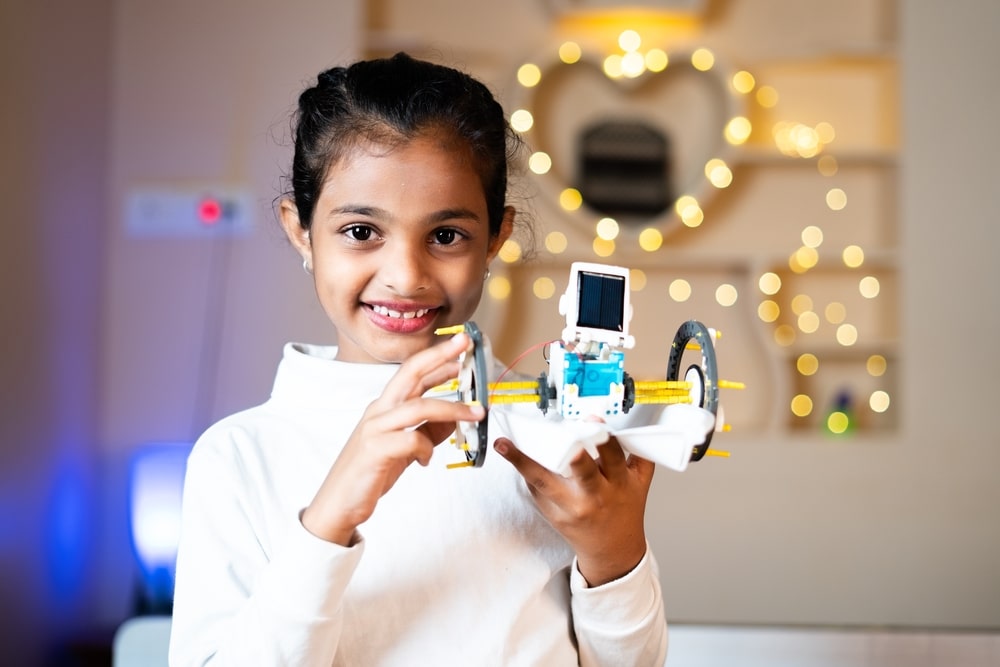It’s well-known that contemporary parenting can often resemble an unending checklist of tasks. However, what if stepping back and allowing your 4- or 5-year-old to handle those “challenging” activities independently could benefit both them and you?
Recent studies have revealed a straightforward mindset alteration that may make a significant difference: viewing daily tasks as chances for your child to learn. Here’s the best part: it’s supported by neuroscience, and it has proven effective.
Insights from the Research
According to a recent study on ‘overparenting’—when parents take over tasks suitable for their children’s development—it can dampen a child’s motivation and negatively affect their long-term well-being. The good news: by assisting parents in reframing the daily challenges children face, it can decrease parental interventions by almost half. Yes, you read that correctly.
“When an adult intervenes and finishes a task for a young child, it can rob the child of a chance to learn how to accomplish that task independently, which could hinder their development of self-efficacy, autonomy, and other vital life skills,” explained lead author Reut Shachnai, a graduate student in Yale’s Department of Psychology, in an interview with Neuroscience News.
Allowing children to engage in tasks on their own supports the growth of their executive functions—cognitive abilities crucial for self-regulation, problem-solving, and targeted action. Research illustrates that parenting approaches fostering a child’s agency (the capacity to make decisions and act independently) and problem-solving skills are positively linked to enhanced executive functions. So stepping back not only lightens your load but also fortifies your child’s ability to tackle life’s hurdles in the future.
We understand; it can be both frustrating and tiring for you to muster the patience to allow your child to attempt (and frequently falter in) simple tasks. Just this morning, I was rushing to get the kids ready for school, while my five-year-old was too sidetracked to get dressed. The temptation to just dress him myself was strong. Yet, when I take a step back, I see that guiding him to get ready independently is key to making future mornings smoother.
This change isn’t just about alleviating immediate stress—it sets the groundwork for your child’s future independence and mental wellness. Prior research (like this one) has identified a connection between declines in children’s independent activities and poorer mental health. In simpler terms, allowing your child to try and possibly fail is among the most beneficial actions you can take for their long-term resilience.
5 Common Frustrations and How to Reframe Them
Here’s how to transform those daily struggles into victories—for both you and your child:
- Getting Dressed
- Frustration: Your child is struggling to put on their shirt, and it’s taking ages.
- Reframe: Getting dressed is an excellent opportunity to practice problem-solving. Allowing them to take their time fosters confidence in their ability to navigate challenges.
- Cleaning Up Toys
- Frustration: They empty every bin and leave you to deal with the mess.
- Reframe: Cleaning up helps teach them responsibility and organization. Every effort they make is a step toward learning how to categorize and take control of their environment.
- Pouring Cereal or a Drink
- Frustration: Milk spills everywhere. Once again.
- Reframe: Spills are part of mastering fine motor skills. Encouraging them to keep practicing aids in coordination—and teaches them that mistakes are acceptable.
- Zipping a Jacket
- Frustration: You’re running late, and they struggle with the zipper.
- Reframe: Zippers can be tricky, but they offer great lessons in patience and perseverance. They will feel proud once they conquer it.
- Putting on Shoes
- Frustration: They can’t seem to differentiate between left and right shoes.
- Reframe: Learning to distinguish left from right and how to wear shoes correctly is a genuine cognitive challenge. This boosts brain development!
Why This Mindset Shift is Effective
By perceiving these everyday tasks as key milestones for your child’s growth, you’re adopting a parenting approach grounded in neuroscience that encourages independence while simultaneously relieving your own stress. As the researchers note, “Taking less control over tasks that parents regard as learning opportunities,” allows children to utilize their own capacities.
The next time you feel the urge to jump in and take over, pause. Take a deep breath. Remind yourself of researcher Reut Shachnai’s insight: intervening too frequently “robs the child of an opportunity to learn” and acquire vital life skills. Each frustrating moment can be transformed into a chance for your child to build confidence, resilience, and independence. Plus, you’ll feel less pressure to do it all. That’s a definite win in parenting.
Image Source: WESTOCK PRODUCTIONS / Shutterstock



































